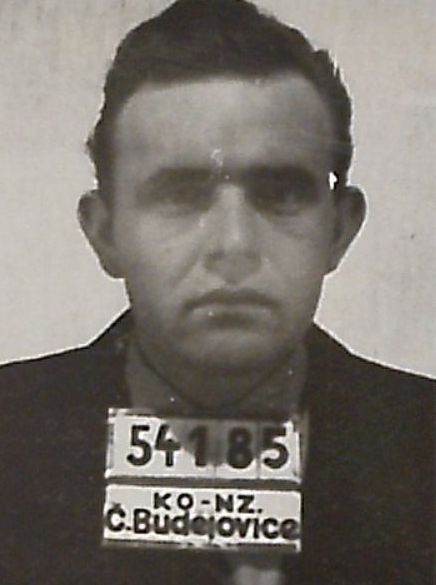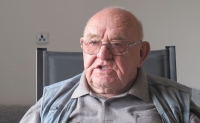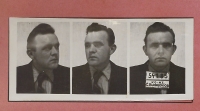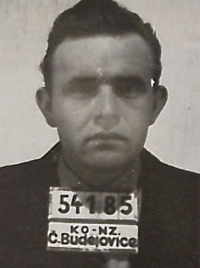We were evicted to a shack

Download image
Jaroslav Antoš was born on December 1, 1930 in the village of Zbehňov in eastern Slovakia. His father Jaroslav, originally Czech, worked as an insurance clerk, his mother Alžběta, originally Slovak, was a housewife and took care of her only son. When Czechoslovakia broke up, the family experienced anti-Czech sentiment from Slovaks and Hungarians. However, they did not have to leave the newly formed Slovak state, as the father was hard to replace in his job. At the end of the war, the front passed through their village. The Antoš family took shelter in a forest dugout shelter, where they remained for several months after the liberation, having lost their house during the fighting. In 1946, the family moved to relatives in Náchod and then to a farm in Teplice nad Metují, which they received as compensation for war damage. They lived together with the original German owners in the homestead until their removal. His father again worked in an insurance company. He was involved in public campaigns against the growing power of the Communist Party. After February 1948, retaliation came and the family was forcibly evicted from the farm to a nearby abandoned shack in the village of Lachov. Moreover, the father was transferred to the other end of the country to Aš, from where he was not allowed to go home. Jaroslav Antoš graduated from a peasant school in Sabinov in Slovakia in 1945 and then worked on the family farm. In 1948-1950 he was employed as a worker in the Rubena Náchod factory. In 1950 he applied for emigration to Canada, where his maternal uncle lived. However, the communist authorities strictly refused the request. Antoš therefore found work in agriculture in the western borderlands, where he wanted to try to emigrate. Due to lack of money to pay a smuggler, he joined the service of American intelligence. Under the direction of Karel Voborský, he organized a group of intelligence officers in Prague, for which he was to be smuggled across the border free of charge. Before this could happen, however, he was drafted into the army and served two years with the tankers in Milovice. After the war, he started working as a tutor at a boarding school in Častolovice near Rychnov nad Kněžnou, where he was arrested on March 15, 1954. State Security arrested most of his spying group. The interrogations, by then without the use of violence, took place in České Budějovice. There, on May 25, 1954, a closed trial of Karel Voborský’s group took place. Jaroslav Antoš was sentenced to seven years in prison for espionage. He served four years in the Svatopluk and Bytíz uranium mining camps. In 1958 he was released on parole. He earned a living as a labourer at the Military Construction Works, eventually ending up at the Třebechovice foundry. Jaroslav Antoš married and had one child. After the fall of totalitarianism, he received an award as a participant of the anti-communist resistance.


